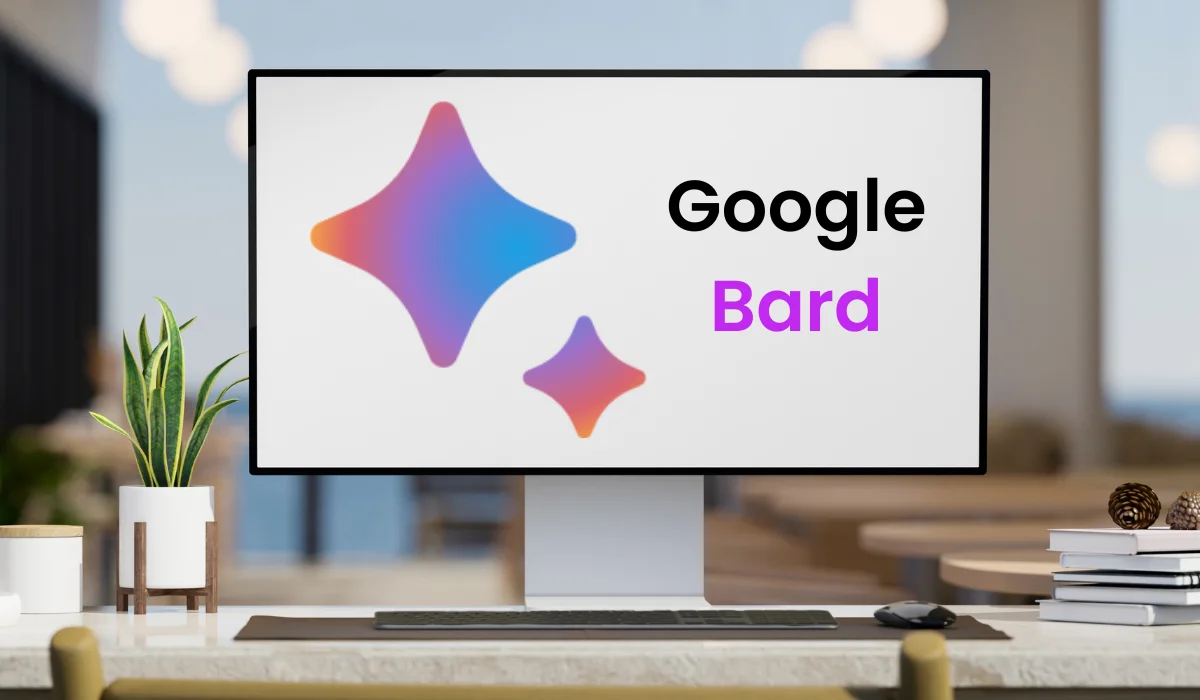As we advance further into the realm of artificial intelligence, the number of applications and platforms increases almost daily. AI has made tremendous strides, especially in language processing, where tools such as Google’s Bard AI have set a high bar. However, competition breeds innovation, and various alternatives have emerged in 2024 to rival Bard’s prowess. Here’s an in-depth look at the top alternatives to Bard AI, based on their features, pricing, and pros and cons.
What Is Bard?
Google Bard is a cutting-edge chatbot instrument designed to foster synergies with generative AI. It leverages a refined and enhanced version of LaMDA, Google’s large language model, to provide assistance to users in diverse tasks such as brainstorming ideas, explicating concepts, and outlining blog posts.
Bard AI represents a fresh breakthrough in the realm of Artificial Intelligence by tech giant Google. As a cooperative generative AI chatbot, it produces several drafts of responses, harnesses Google Search for credible information, connects to the live internet for the most recent data, and improves continually by learning from user feedback.
Features of Bard
- Google Bard offers human-like text generation, rapid responses, and customizable interactions, fueled by its integration with Google Cloud and the ability to generate multiple response drafts to user prompts.
- Bard uses Google Search to deliver reliable and varied content, stays updated through live internet access, and enhances its performance by learning from user feedback.
- Bard features a user-friendly interface, seamless integration with Google products, and the ability to provide specific, concise answers to user queries.
Why People Are Looking for Bard Alternatives
- Google Bard, despite its strengths, might exhibit flaws including errors or misinformation and has limited functionality compared to advanced models like ChatGPT; it’s crucial for users to verify provided information and understand the context limitations of these tools.
- Bard may inadvertently reflect biases and stereotypes from its learning data, potentially leading to inappropriate or offensive responses; it’s important to remember that Bard can’t replace human judgment and users should consider the ethical and social implications of AI tools.
- Bard, in most cases, copies content from trusted sources like Wikipedia. So, you can’t expect to get 100% unique content for your marketing materials.
10 Best Google Bard Alternatives in 2024:
1. OpenAI’s GPT-4
OpenAI has consistently pushed the boundaries of language models. GPT-4, its newest iteration, offers advanced features that build upon the GPT-3 architecture.
Features and Pricing: GPT-4’s most striking feature is its ability to grasp complex instructions in a single input, improving upon previous models. OpenAI operates a tier-based pricing structure: Free for limited usage, $20/month for standard, and enterprise pricing upon request.
Pros: The advanced instruction comprehension makes it a flexible tool for a wide range of language tasks. Its ability to generate extensive, coherent text and remember conversation context is top-notch.
Cons: GPT-4 may produce overly verbose responses, and while its general knowledge is impressive, it is not updated in real-time.
See Also: 10 Google Drive Alternatives
2. DeepL Translator Pro
DeepL has earned a reputation for delivering highly accurate translations. Its latest version added AI text generation to its toolkit.
Features and Pricing: DeepL Pro costs €20/month and includes features like text generation, translation, and transcription services across multiple languages.
Pros: Excellent at multilingual tasks, and its translation accuracy is unparalleled.
Cons: Its text generation is less creative and more focused on strict syntax adherence.
3. IBM Watson Discovery
Watson Discovery, an IBM offering, focuses on knowledge discovery, document understanding, and intelligent search.
Features and Pricing: Watson Discovery offers natural language processing, machine learning, and advanced text analytics. Pricing is $1,000/month for its standard plan, with enterprise pricing available upon request.
Pros: Exceptional at extracting insights from large volumes of text.
Cons: Its language generation capabilities are not as robust as others on this list.
Also Read: 8 Highest-Paying Google AdSense Alternatives
4. Amazon Comprehend
Amazon Comprehend uses machine learning to understand and interpret text, ideal for companies handling vast amounts of data.
Features and Pricing: Comprehend can detect language, extract key phrases, understand sentiment, and extract entities. Pricing starts at $0.0001 per unit processed.
Pros: Excellent for data analysis and extraction of insights.
Cons: While powerful for analysis, it does not offer language generation features like Bard.
5. Salesforce Einstein Language
Salesforce’s Einstein Language is designed to work seamlessly within the Salesforce ecosystem, providing advanced language processing.
Features and Pricing: Einstein Language offers natural language understanding, sentiment analysis, and intent detection. The pricing is based on the Salesforce plan selected.
Pros: Exceptional integration with the Salesforce platform.
Cons: Limited utility outside the Salesforce environment.
You May Like: 12 Google Analytics Alternatives
6. Baidu’s ERNIE
ERNIE, developed by Baidu, is a language understanding model designed to understand the nuances of various languages, particularly Asian ones.
Features and Pricing: ERNIE is designed to perform tasks such as sentiment analysis, translation, and question-answering. Contact Baidu for pricing details.
Pros: Excellent at understanding and translating Asian languages.
Cons: Not as versatile as Bard when it comes to text generation.
7. Microsoft Azure Text Analytics
Azure Text Analytics focuses on analyzing text to extract insights, making it ideal for businesses with large volumes of data.
Features and Pricing: Text Analytics offers key phrase extraction, sentiment analysis, and named entity recognition. Pricing begins at $150 per million characters.
Pros: Powerful for data analysis and integration with other Azure services.
Cons: Lacks the creative text generation capabilities that Bard offers.
See Also: 5 Best Google Stadia Alternatives
8. NLP.js
NLP.js is an open-source alternative that allows developers to build and train their models.
Features and Pricing: NLP.js offers language understanding and management of conversational contexts. Being open-source, it’s free to use.
Pros: Complete control over the development process.
Cons: Requires a strong technical background and is not plug-and-play like Bard.
9. AllenNLP
AllenNLP, a project by the Allen Institute for AI, focuses on advanced natural language processing for research purposes.
Features and Pricing: AllenNLP offers multiple pre-trained models for tasks such as semantic role labeling and named entity recognition. It’s free to use.
Pros: Great for researchers and developers looking to experiment with custom models.
Cons: Not geared towards business users or non-technical individuals.
10. Facebook’s BART
BART, developed by Facebook, is a powerful transformer-based model that can generate human-like text.
Features and Pricing: BART can summarize, translate, and generate text. While it’s free to use, you need resources to train the model.
Pros: Highly versatile and capable of generating human-like text.
Cons: Requires considerable resources to fully utilize and may lack the refinement and ease of use of Bard.
Related: 10 Facebook Alternatives – Conservative, Free Speech
Conclusion
While Google’s Bard AI is a powerful tool, the AI landscape in 2024 is filled with numerous alternatives, each with its strengths and drawbacks. Whether you are a researcher, a business, or a developer, the AI tool that fits your needs is out there.





